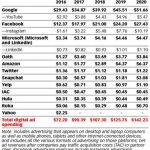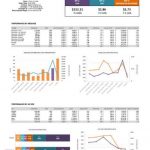With 54% of comScore 1000 publishers adopting ads.txt, OpenX says it will start banning unauthorized inventory
The ad exchange will implement the new policy in full by the end of this quarter.
New numbers from ad exchange OpenX further point to deepening adoption of ads.txt and changing programmatic practices.
OpenX reports that 54 percent of the comScore 1000 had implemented ads.txt on their sites by mid-January. That’s up from 7 percent in August, when ads.txt adoption was slow to scale. The analysis by OpenX focuses on the largest publishers, with adoption monitored by its own crawler.
With critical mass achieved, OpenX is instituting a ban from its exchange on all reseller inventory that is not authorized in a publisher’s ads.txt file. OpenX says it will begin implementing the new compliance requirement in the coming weeks, and by the end of Q1, all unauthorized reseller traffic will be blocked from sites that have implemented ads.txt files. Many buyers and DSPs have said they will no longer buy unauthorized inventory. As of October 2017, Google’s DoubleClick Bid Manager began transacting only on inventory from authorized sellers in publishers’ ads.txt files when available.
“Enforcing a strict ads.txt compliance protocol is just another way OpenX is actively working to curate the highest quality marketplace for advertisers looking to access premium inventory,” said John Murphy, head of marketplace quality at OpenX, in a statement. “Ads.txt is bringing the industry one step closer to being fraud-free, and the rapid adoption of this initiative highlights the need in the market for solutions like these while building confidence in the value of programmatic overall. We encourage publishers and advertisers to push for mass adoption of standards, like ads.txt, that allow them to hold their technology partners accountable.”
The ads.txt (Authorized Digital Sellers) initiative was launched last June by the IAB Tech Lab. It is a simple text document that publishers post on the root domain of their websites indicating which resellers, such as ad exchanges like OpenX, are authorized to sell inventory on their sites.
If widely adopted by publishers, ads.txt could dramatically limit domain spoofing, a type of ad fraud in which scammers misrepresent legitimate publisher domains. Methbot, reported in 2016, is a dramatic example of this kind of fraud. The botnet was found to be spoofing more than 6,000 premium publisher domains and selling millions of dollars per day in video advertising inventory on the fake sites.
Marketing Land – Internet Marketing News, Strategies & Tips
(21)















